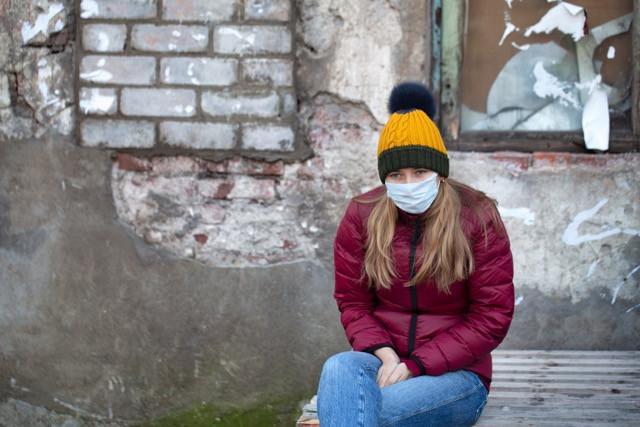Coronavirus: Luxembourg lockdown
Luxembourg’s government has introduced a series of measures in an effort to limit the spread of covid-19 coronavirus. Restrictions on movement mean people should only leave their homes to go to work, pay visits to medical facilities, go shopping or to help others. Restaurants, bars, clubs, libraries, museums and all shops apart from grocery stores have been shut down. Pharmacies, telecoms outlets, petrol stations and newsagents will be able to remain open and restaurants can maintain delivery services. Meanwhile, the number of confirmed cases of covid-19 had reached 77 on Sunday evening. Keep abreast of latest Luxembourg developments via our update page.
Coronavirus: Germany closes borders
Germany has decided to reintroduce border controls with Luxembourg and Denmark, in addition to previously announced closures of its frontiers with France, Austria, Switzerland, as of Monday morning, the BBC, Deutsche Welle, the FT and Telegraph report. German residents who can prove they work in Luxembourg will still be allowed across the border. Earlier, Denmark had closed its borders to international travellers, Forbes and The Local Denmark reported.
Coronavirus: French stay away from polls
Estimates suggest that up to 56% of French voters did not bother to cast a ballot at Sunday’s first round of voting in local elections because of fears of coronavirus. The government is to make an announcement on Tuesday about the second round of voting, which is scheduled for Sunday 22 March. In Paris, incumbent socialist mayor Anne Hidalgo polled 30% of the vote. Green candidates fared well in many big cities. France has imposed a shutdown of all non-essential shops and businesses. The Guardian, France24 and Reuters have more.
Coronavirus: Ireland closes pubs and restaurants
Just two days before its biggest ever annual celebration, Ireland closed down all pubs with immediate effect on Sunday. Health minister Simon Harris made the announcement after he said many establishments had proven it was “simply not possible to comply” with previously imposed restrictions on numbers. The Irish Independent, RTE and Irish Times have more. Meanwhile, The Guardian has a photo reportage of Europe’s eerily empty streets.
Coronavirus: Trump allegedly tried to buy German vaccine
German politicians have reacted angrily to a report in the Welt am Sonntag that US president Donald Trump allegedly offered pharmaceutical company CureVac $1 billion to secure a covid-19 vaccine exclusively for the United States. The Guardian, Daily Mail, NBC and Washington Post report on the story.
Coronavirus: US quantitative easing fails to impress markets
CNBC reports that the Federal Reserve on Sunday dropped its benchmark interest rate to zero and “launched a massive $700 billion quantitative easing” programme to help combat the economic impact of coronavirus. The move failed to impress the markets, with futures hitting “limit down” levels of 5% lower, CNBC, The Street, LA Times and Forbes report.
Sanders and Biden slug it out
Coronavirus dominated Sunday’s Democratic debate between Joe Biden and Bernie Sanders as they made arguments about how they would lead the country in a time of crisis. Both candidates for the Democratic nomination slammed president Donald Trump’s handling of the crisis. The debate was labelled as a battle between results and revolution, with Biden saying voters did not want disruption while Sanders promising he would bring about sweeping economic and social reforms. Reuters and The Washington Post have good summaries.
Gantz asked to form Israeli government
Benny Gantz, the rival of Benjamin Netanyahu, has been asked to form a government after leaders of Israel’s main parties met president Reuven Rivlin on Sunday. Two weeks after the third election in the country in a year, Gantz has managed to garner the support of 61 of 120 lawmakers. The Guardian, Haaretz, The Jerusalem Post and Aljazeera have news and analysis.
King Felipe renounces Juan Carlos inheritance
The growing scandal surrounding former King Juan Carlos of Spain has led to his son, reigning monarch King Felipe VI, renouncing his inheritance, the BBC and New York Times report. Juan Carlos, who is alleged to have received $100m in 2008 from Saudi Arabia via an offshore account, is facing an investigation by the Swiss financial authorities.
Coronavirus: Luxury group switches to sanitiser
Luxury goods group LVMH is to start producing hand sanitiser instead of its Christian Dior, Guerlain and Givenchy perfumes, The Guardian reports. The sanitiser will be distributed to French hospitals “at no charge”.
Coronavirus: From Time Out to Time In
Will Gleason, editor of Time Out New York has explained on the famous what’s on guide’s website why the publication has temporarily changed its logo to Time In as the city faces a shutdown of venues and bars.
Today’s breakfast briefing was written by Duncan Roberts
